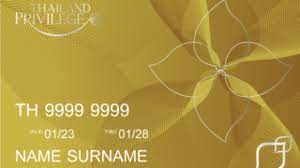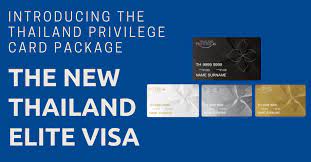Expatriates looking to relocate to Thailand have a number of immigration options available to them depending upon their intentions, their resources, and their tolerance for risk. If you’ve been offered employment here, or you’re interested in starting up your own business that you plan to operate yourself or with some partners, you have little choice beyond applying for a non-immigrant O-B class visa and an accompanying work permit, which will necessarily involve your registration with Thailand’s social security office. But if you’re a digital nomad, or the director of a Thai company that doesn’t otherwise employ you, or you run an overseas business remotely, you may have certain other options available. This article focuses on Thailand’s Privilege Visa (formerly, and to many still, known as the Elite Visa) program, and certain new aspects of the program that took effect on October 1st.
For starters, these are considered “membership” visas that are valid for period of between 5 to 15 years (or even 20, under certain circumstances) and provide a range of associated benefits, including varying numbers of “privilege points” that can be exchanged for miscellaneous freebies. For example, holders of so-called Diamond and Reserve visas valid for 15 and 20 years, respectively, can exchange points for domestic airline tickets on Bangkok Airways. Even the most basic level of the Privilege Visa program for a 5-year Gold Membership provides discounted dining, hospitality, and retail options, expedited administrative procedures, and preferential ticketing preferences for assorted leisure activities and events.
For example, Privilege Visa holders get free multiple-entry stamps allowing them to come and go into and out of Thailand as they wish, thus saving the THB 3,800 annual fee and the associated administrative requirement for such a privilege imposed upon ordinary visas holders. Depending on the duration of your stay in Thailand, this could end up being a considerable amount of money over the course of ten or fifteen years. Informing the government about your whereabouts on a quarterly basis is yet another benefit offered to Privilege Visa holders as a ‘government concierge’ service, whereas ordinary visa holders need to make their own individual arrangements every 90 days. Perhaps even more significant, particularly for older applicants, is that Privilege Visa holders are not required to carry personal health insurance.
Unlike a retirement visa, there are no age restrictions imposed by the Privilege Visa program and the top-level Reserve membership is even transferable to unrelated third parties.
Now for the downsides. Because these are considered to be membership categories not available to everyone, Elite Visas come at a much higher price. For example, whereas a non-immigrant visa applicant merely needs to show proof of funds in excess of THB 800,000 in their own names deposited in a local Thai bank, Gold level Privilege Visa applicants must instead pay a minimum THB 900,000 amount into the program as an out-of-pocket fee for their five-year visa. Platinum Visas valid for ten years now costs THB 1,500,000 fee, while a fifteen-year Diamond membership will set you back THB 2,500,000. A Reserve visa, valid for 20 years but available only upon invitation, now costs THB 5,000,000.
Family visas classifications previously available were discontinued with effect from October 1st of this year, but family members can instead apply for their own elite visa at discounted prices starting at THB 1,000,000.
Cynics may (rightfully) observe that the value of certain program benefits are de minimis in comparison to the costs, or just find themselves out of luck depending on their nationality. For example, while quarterly address reporting may at first seem daunting, or costly, to the uninitiated it’s really not a problem after you’ve done it once or twice. Individuals can do it for themselves, online, for free. My landlord does my reporting for me, also for free, simply because he’s a kind gentleman and I ask him nicely. Sure, Privilege Visa holders get Greeting and Escort services at the airports upon arrival and departure by Elite Personal Assistants, but so what? Who needs that, and is it, in itself, worth a THB 900,000 price of admission? Privilege Visa holders can exchange privilege points at movie theaters for buy-one, get-one-free ticketing. Gosh, what a huge savings that represents! Discounts at spas and golf courses may also not be too appealing depending on one’s lifestyle. Mos Burger also offers Privilege Visa holders a buy-one, get-one-free opportunity but regrettably that’s limited to one burger per month. Finally, citizens from twenty-eight countries around the world are excluded from and ineligible for the Privilege Visa membership scheme altogether.
Regardless of one’s personal views about the Privilege program, the Thai Government clearly places a value on it so its safe to say that foreigners who avail themselves of it will be recognized accordingly (at least for as long as they behave themselves). For some individuals and their families, Thailand’s Privilege Visa program may be a safe and sensible, hassle-free preferred option; for others it may instead be over-hyped, short on substance, and an utter waste of money better spent elsewhere.
(C) 2023 Frank Rittman





